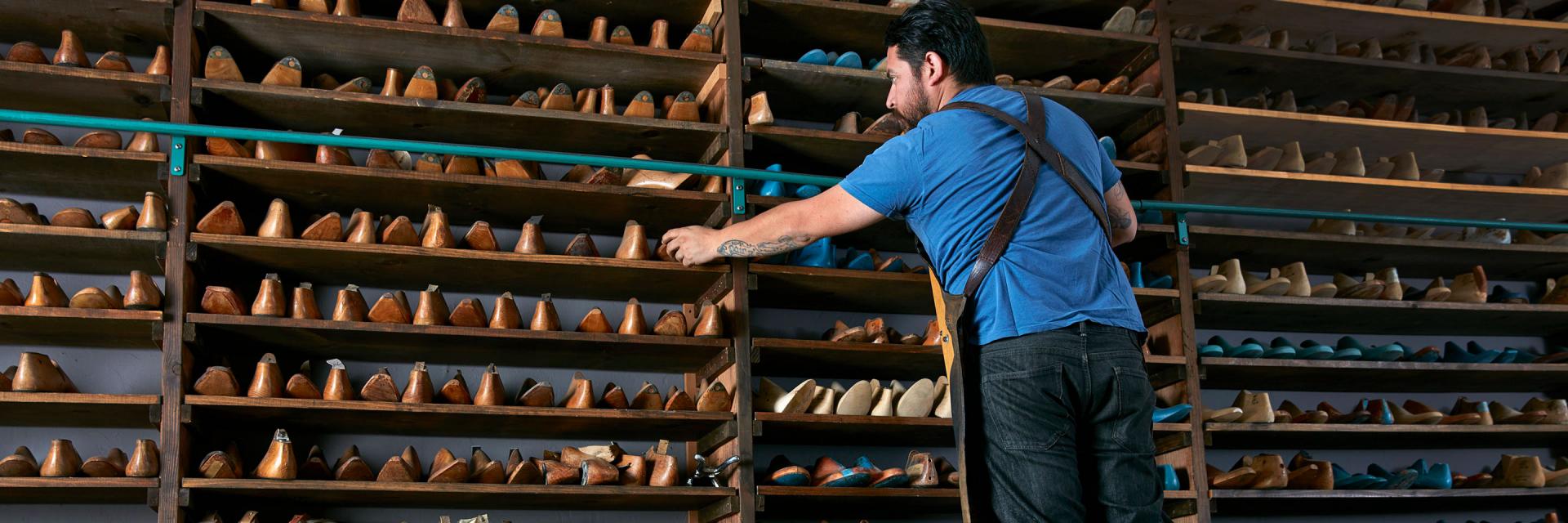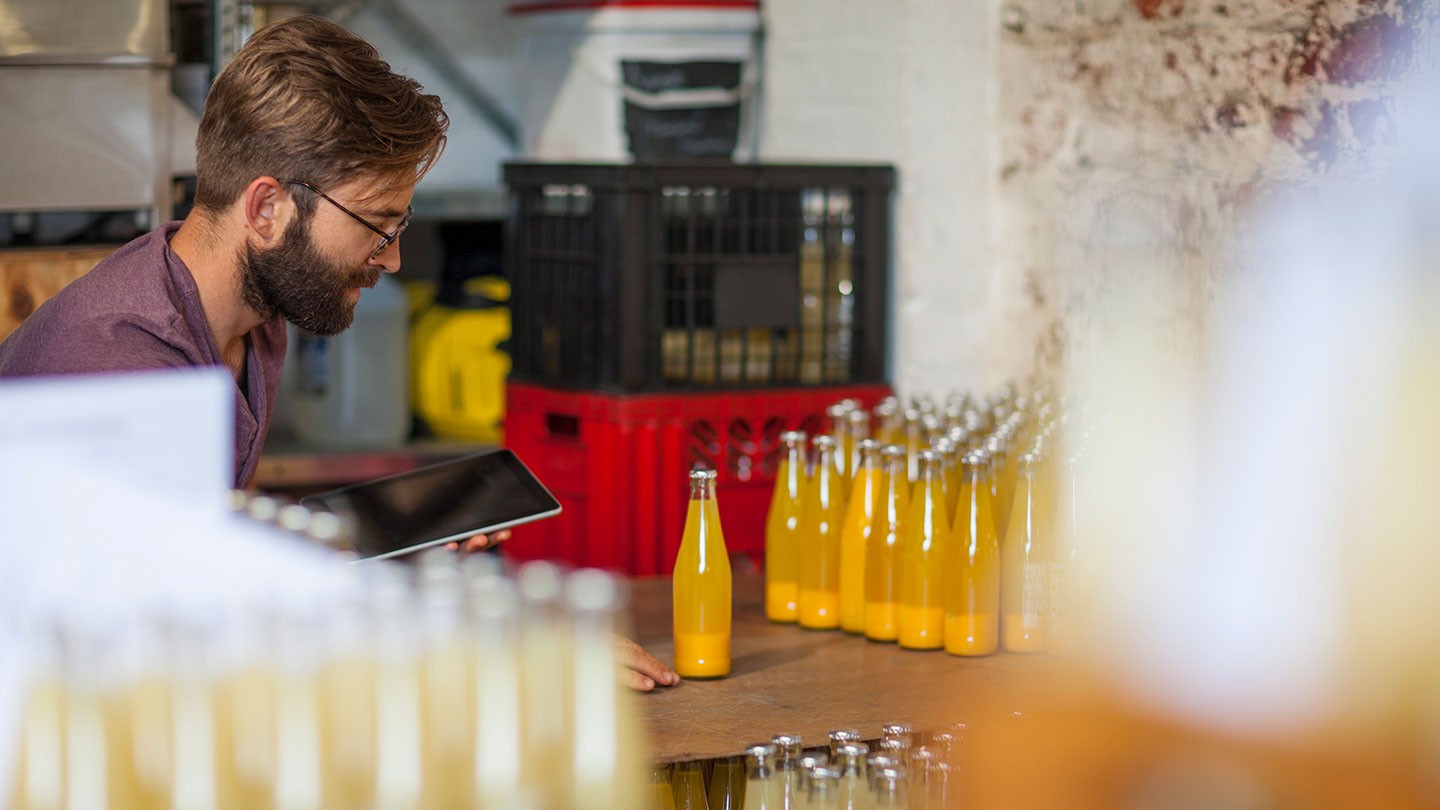
Growth
Six key takeaways from Barclays' Made in Britain report
26 March 2021
Barclays surveyed over 10,000 people in Africa, Asia, North America and Europe to discover the premiums global consumers are willing to pay for British products, and how UK companies can unlock new export opportunities. Here are six key takeaways from the report.
1. Paying a premium for British-made goods
Britain has a strong reputation for quality and innovation, built on tradition and longevity, according to the Made in Britain report. More than one-third (34%) of respondents worldwide said they had knowingly paid a premium for a British-made product. The percentages were higher in emerging markets, with the majority of respondents from China (63%), India (60%), and the UAE (56%) saying they had done so.
Across all regions surveyed, 36% of participants said they are buying more British-made products now than they were five years ago, citing ‘good value for money’, ‘high quality’, ‘status’ and ‘internationally respected’.

According to the report, UK exporters could benefit from an additional value of up to £3.5bn per year across 10 key markets.
As the UK enters a new era on the international stage, our research highlights that there is strong appetite for British-made products all over the world.
Global Head of Trade and Working Capital, Barclays Corporate Banking
2. New era, new markets
There were regional differences when it came to the willingness to buy British. Asked whether they were buying more or fewer British goods than they did five years ago, 69% of respondents in India, 64% in China and 64% in the UAE, as well as 31% in the US, replied, ‘More’. Meanwhile, of those surveyed in China and India, around eight times as many people said they would be more likely to buy goods that displayed a British flag than the number who would be put off a purchase. In all four EU nations surveyed, greater numbers of consumers said they would be “less inclined” than “more inclined” to buy goods stamped with a Union Jack.
“As the UK enters a new era on the international stage, our research highlights that there is strong appetite for British-made products all over the world,” said James Binns, Global Head of Trade and Working Capital at Barclays Corporate Banking. “Most notably, it shows there is significant opportunity for growth in markets such as China, India and the UAE, which is timely when new trade routes are being opened up to markets further afield.”
3. The value of Brand Britain
Graham Stuart MP, Minister for Exports at the Department for International Trade, said the Barclays report, identifying a potential £3.5bn in premiums paid for British products, “reinforces just how valuable Brand Britain is and the opportunities that are on offer for UK companies that trade internationally”.
Stuart said the report made clear that consumers in fast-growing markets have a strong preference for UK goods, which if harnessed, could help create and secure British jobs. He added: “It should give confidence to those who have not exported before that it is worth investing time, effort and money in, as the returns can be significant. It should embolden existing exporters to look at expanding their overseas sales to new markets.”
The report should give confidence to those who have not exported before that it is worth investing time, effort and money in, as the returns can be significant. It should embolden existing exporters to look at expanding their overseas sales to new markets.
Minister for Exports at the Department for International Trade

The research suggested British fashion was the product category most viewed as “good quality”.
4. Quality fashions
More than one-third (39%) of all respondents said they would pay more for British-made products because they believe they are of a higher quality. Research considered country of origin importance, perception and value across eight product categories: general food, alcoholic beverages, soft drinks, fashion items, high-precision tools, automotives, homeware, and video games.
British fashion was the product category most viewed as “good quality” around the world, according to 46% of respondents. Quoted in the report was Anthony Romano, CEO of quintessentially British shoe brand Church’s, who said he expects his company’s brand awareness and export sales to grow. “We are seeing growing demand for our products in Asia, notably Japan, China and South Korea,” he said.
5. A £3.5bn opportunity
While emerging markets provide an opportunity for growth, the UK’s more traditional trade partners will also continue to ‘back British’, the report finds. Of the £3.5bn of additional “premium” income identified for British exporters in the markets surveyed, £1.2bn would come from the US, £543m from France and £538m from Germany.
Emerging from the pandemic, analysts and business owners hope that UK exports can recommence the sharp upward trajectory witnessed in the three years prior to the coronavirus crisis in 2020 – with a monthly high of over £62bn in exports in late 2019, up from around £40bn to £45bn between 2012 and 2016.

Analysts and business owners hope that UK exports can recommence the sharp upward trajectory witnessed in the three years prior to the coronavirus crisis in 2020.
Scaling up enables businesses to explore innovation and to recruit people with the skills and outlook to take new directions and seize new opportunities.
Global Head of Trade and Working Capital, Barclays Corporate Banking
6. Strategies for success
“New revenue opportunities help diversify a business’ customer base and scaling up offers increased efficiencies,” said Binns. “Scaling up also enables businesses to explore innovation and to recruit people with the skills and outlook to take new directions and seize new opportunities.”
Barclays’ solutions for exporters, including trade finance bonds, loans, receivables finance and collections services, can help businesses looking to grow their presence in new markets. Along with foreign exchange expertise in managing currency exposure and strong relationships with the Department for International Trade and the UK Export Finance agency, the bank is here to help both new and expanding exporters fly the flag for ‘Made in Britain’.
Made in Britain report
Barclays Corporate Banking surveyed more than 10,000 consumers in 10 international markets to compile the Made in Britain report – across France, Germany, the Republic of Ireland, the US, China, India, the UAE, the Netherlands, South Korea and South Africa. Participants were asked questions including ‘Are you buying more or fewer British-made products today than you were five years ago?’ and ‘If you saw a British flag on a product, would you be more or less inclined to purchase it?’. According to the report, UK exporters could benefit from an additional value of up to £3.5bn per year across these countries by labelling products as ‘Made in Britain’.
Find out more about Barclays Corporate Banking solutions for exporters.